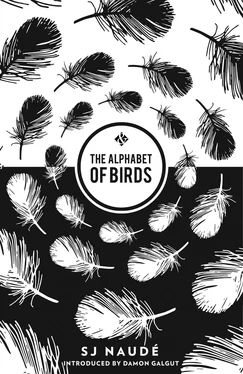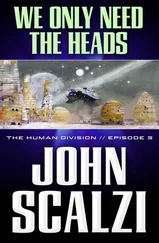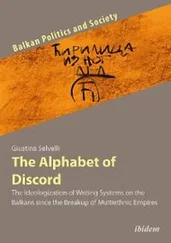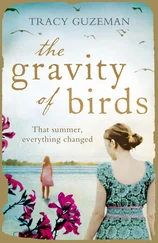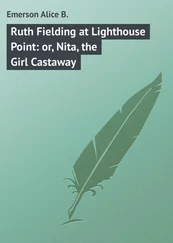She turns away. The struggle has entered a new, brutal phase. Scorched earth.
‘It’s not important.’
He opens his mouth to say something, but she waves away his words with her hand.
‘No pill ever again. Never anything again. My body still belongs to me.’
War beyond war.
She asks him to switch on the music and turns her back on him. The chant of monks. The droning bass behind it could be God’s voice, or the voice of the deep sea.
They go on an excursion. From Tokyo they will travel south-west. The ultimate destination: Itsukushima Island, near Hiroshima. They book tickets to attend a Noh theatre performance on Itsukushima. Hisashi is not in the mood for it.
‘Boring, elitist stuff,’ he complains.
He persuades him. They travel by night to avoid the worst of the traffic. When they return, it will be by day, so that they can get a view of Mount Fuji’s snowy peak.
Hisashi is driving — singing and humming to stay awake. For his part, he is trying to sleep, but is forced to listen: off-pitch fragments of French chansons, British pop, impenetrable Japanese songs. When Hisashi switches on the radio and it belts out Kylie Minogue, sleep finally deserts him.
Just before midnight they stop at a service station on the highway. They refuel, then park next to rows of lorries. He aims for the little, brightly lit restaurant where waiters are waiting behind polished glass, like wax dolls, but Hisashi says, ‘Let me show you something.’
They walk around the building to a different entrance. Behind the first door is a slot machine. Hisashi inserts coins. It is warm and stuffy here. A little window swooshes open and two towels and magnetised cards slide out on an electric tray. They walk through a second door. The steamy heat takes one’s breath away. A dressing room. They undress and, with a swipe of the cards, lock their clothes in two steel lockers.
They walk through a third door. In here everything moves at a languorous pace. Fat, naked lorry drivers are immersing themselves in baths or arranging themselves on deckchairs around the edges. Boiled red, like crayfish. Some leave their towels and slip into the water. It is scorching. The men look at him from under heavy lids, at his white body. Nobody says a word. In such steam, while you are slowly being boiled tender, it is not possible to speak.
When they arrive back at the carpark glowingly revitalised, he notices, for the first time, the rows of plastic cherry blossoms blooming on electric wires criss-crossing overhead.
He is sitting on the veranda. Hunger makes him alert. He has not been strictly implementing his threat to eat no more than his mother does, even though he makes her believe it. He nevertheless has difficulty taking in much, so that he is starting to feel transparent. The transparency enhances his senses.
A lukewarm winter breeze is blowing. His ears are tingling with birdsong and the wind is moving through the branches. For weeks his mother has been reluctant to go out, even though he has offered to drag her bed out here, so that she can lie with her feet in the sun. He will have to find a way to bring the birds and the singing branches inside, to her. Her sheets are too white and silent.
Dry leaves brush over the veranda floor, past his feet. Winter wants to sneak into the house. Perhaps he should stay here to keep out the plundering season, to catch every leaf and crush it, until his hands themselves turn to dust.
Later on he is sitting in a garden chair, in a shaded corner under the red chestnut tree. From here he can see his mother through the window, in her bed. And she can see him. His travel journal is progressing. What he has forgotten, he makes up. It is coming to him, faster and faster. His pen takes them to places they have never been.
He is there with her at every turn, at each crossing of another little boundary: when she can no longer lift her foot high enough to get into the bath, when a glass of water becomes too heavy and slips from her hand. At her request he brings paper. She wants to write a few last letters. She tries, but trembles so much that she can only make ink marks. It upsets her more than anything to date. More, perhaps, than the cancer diagnosis. For hours, she does not say a word. He leaves her alone.
‘I’ll write,’ he says later in the afternoon. ‘You dictate.’
‘Later,’ she says. (Never, that is.)
She turns her back. He stays. She asks him, after a silent spell, what he is writing out there in the garden.
‘I’m struggling to finish it,’ is all he says.
‘Shall I read it and suggest an ending?’
He hears something in the house. He walks to the lounge. A bird is fluttering about, up against the ceiling. Some greyish suburban bird or other; he has long since forgotten the names of birds here. He tries to chase it out. It keeps flying into corners. He opens the double doors to the veranda. It flies out, sweeping over the frost-dead lawn into the white sky. Bird shit stays behind on the interior walls, like crooked letters. Like Eastern calligraphy. Maybe that is an ending. Let the birds write it.
He had been trying to keep Hisashi away from his mother. He thought the Japanese man would exhaust her. But she inexplicably perked up when he peered into her room.
‘How are you doing, Mommy?’ Hisashi asked.
He wanted to point out to Hisashi that one does not address someone else’s mother in that manner in English, but she got in first.
‘Bring me a cup of tea and then we can have a chat,’ she whispered.
When Hisashi returned with the tea, she was drowsy, but she took a sip or two.
‘I’m going to come and cook for you,’ Hisashi said to her.
He wanted to explain that his mother was no longer eating anything, and that he was looking after her anyhow, but again she was too quick for him.
‘Something new, please. Something I’ve not eaten before.’
The gate bell rings. Talk of the devil. When the front door opens, the food smells reach him instantly. They are emanating from the little tower of plastic boxes Hisashi is carrying against his chest. He wants to wax indignant about the repeated invasions, but his stomach is empty and his mouth watering.
‘We’ll be eating outside,’ Hisashi says, marching in.
‘She won’t go outside, Hisashi.’
Hisashi just smiles mysteriously. He unpacks the food in an orderly and precise manner, not on the veranda, but in the shade under the red chestnut tree. On the rusty steel-mesh table he sets out miso soup, bowls of rice, a chicken and noodle dish, and vegetable tempura.
He just stands there, looking on helplessly. There is green tea. Hisashi is disappointed that they don’t have Oriental mugs. He has to pour it into ordinary teacups.
‘Where do you get all these things, Hisashi?’
‘Cooked it!’
‘The ingredients, I mean.’
‘Tried delicatessens nearby. Shopping centres. Useless rubbish. Japanese ingredients, but expensive, useless rubbish.’
He explains how he ventured into the run-down city centre, how he tracked down a little shop selling real Japanese products. The kind of things one would find in Tokyo.
‘Now we carry her outside.’
Hisashi is smiling as if everything here is a secret and inexhaustible source of joy. The smile is as tormenting as the undertone in his mother’s music. He shakes his head.
‘She doesn’t want to, Hisashi. I’ve told you, haven’t I? She hasn’t been out for weeks. She’s too weak even to sit up.’
Hisashi keeps smiling, leading the way into the house.
She agrees to be carried outside. They help her from the bed into an armchair. The skin is hanging loose from her bones. Without a word they carry the chair between them, out into the sun, towards the smells of food.
Читать дальше
